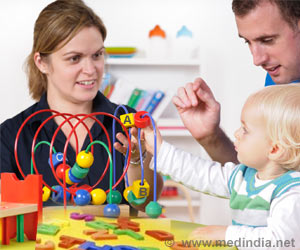Disagreements between parents and grandparents on parenting choices can be over discipline, meal choices, TV/screen time, and health. To avoid the risk of losing bonding time with their grandchildren, grandparents should strive to understand and comply with parent requests to be consistent with parenting choices.
- Grandparents and parents can disagree over parenting choices like discipline, meals, TV/screen time and many other areas, when it comes to parenting
- Most of the disagreements stem from grandparents being either too lenient or overly harsh with their grandchildren
- Parents feel that by being too lenient, grandparents are undermining their parental authority
- Major disagreements between parents and grandparents can harm the relationship between the child and the grandparent
TOP INSIGHT
Grandparents, should be consistent with parenting choices by trying to understand and comply with parent requests. They should support parents in the difficult job of raising children and should try to avoid escalating the conflict to the point that they risk losing a special time with their grandchildren.
Read More..
Other common areas of disagreements are over manners, safety and health, bedtime, treating some grandchildren differently than others and sharing photos or information on social media.
"Grandparents play a special role in children's lives and can be an important resource for parents through support, advice, and babysitting. But they may have different ideas about the best way to raise the child, and that can cause tension," says Mott Poll co-director Sarah Clark.
"If grandparents contradict or interfere with parenting choices, it can have a serious strain on the relationship,” Clark adds.
Survey
The findings reveal that around 57% of the time, disputes between parents and grandparents are over disciplining. Choices over meals contribute to 44% of the difference in opinion, and 36% of the time there are disagreements over TV/screen time.
"Parents may feel that their parental authority is undermined when grandparents are too lenient in allowing children to do things that are against family rules, or when grandparents are too strict in forbidding children to do things that parents have okayed," Clark says.
Inter-generational differences are the source of some disagreements. Some grandparents may feel that their way of parenting is the right way.
When grandparents compromise on child safety by refusing to put babies to sleep on their back or do not use a booster seat when driving grandchildren to preschool, it also results in major disagreements.
Conclusion
Parents have tried to get grandparents to be more respectful of their parenting choices and household rules. While half of the grandparents made a noticeable change in their behavior as a result of the request and have tried to be more consistent with how parents do things, 17 % of the grandparents have objected it outright.
"Whether grandparents cooperated with a request or not was strongly linked to parents' description of disagreements as major or minor," Clark says. "The bigger the conflict, the less likely grandparents were to budge."
When grandparents refuse to agree to such requests, parents are more likely to put limits on the amount of time their child spent with them.
"Parents who reported major disagreements with grandparents were also likely to feel that the conflicts had a negative impact on the relationship between the child and the grandparent," Clark says.
"These findings indicate that grandparents should strive to understand and comply with parent requests to be more consistent with parenting choices - not only to support parents in the difficult job of raising children but to avoid escalating the conflict to the point that they risk losing special time with grandchildren."
Source-Medindia
 MEDINDIA
MEDINDIA





 Email
Email




